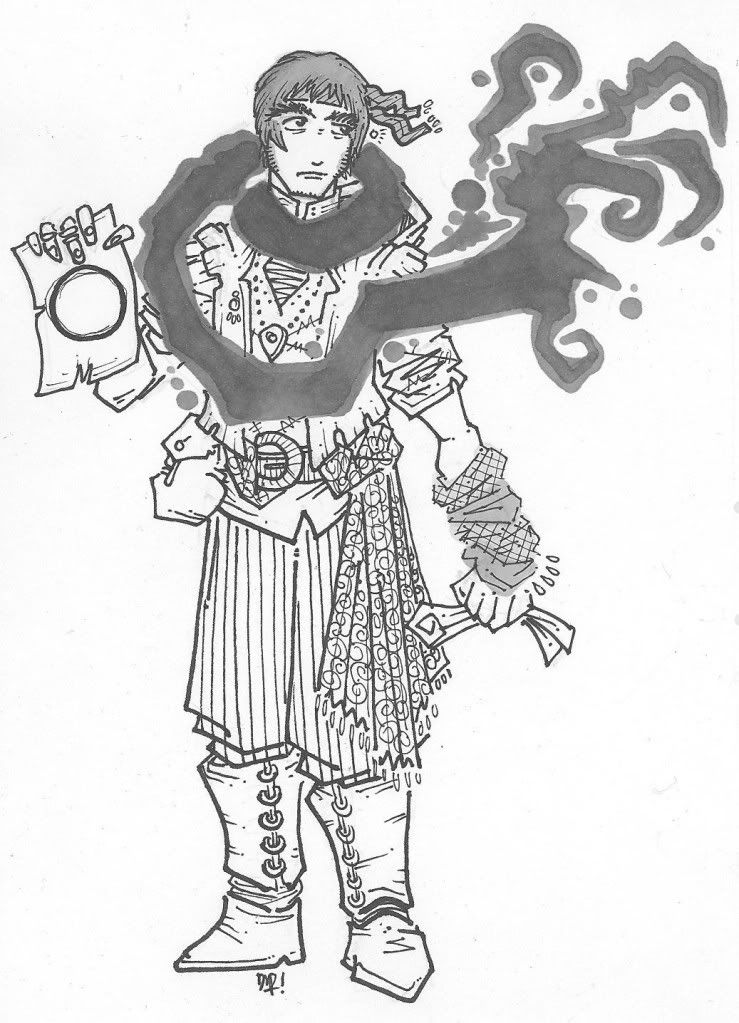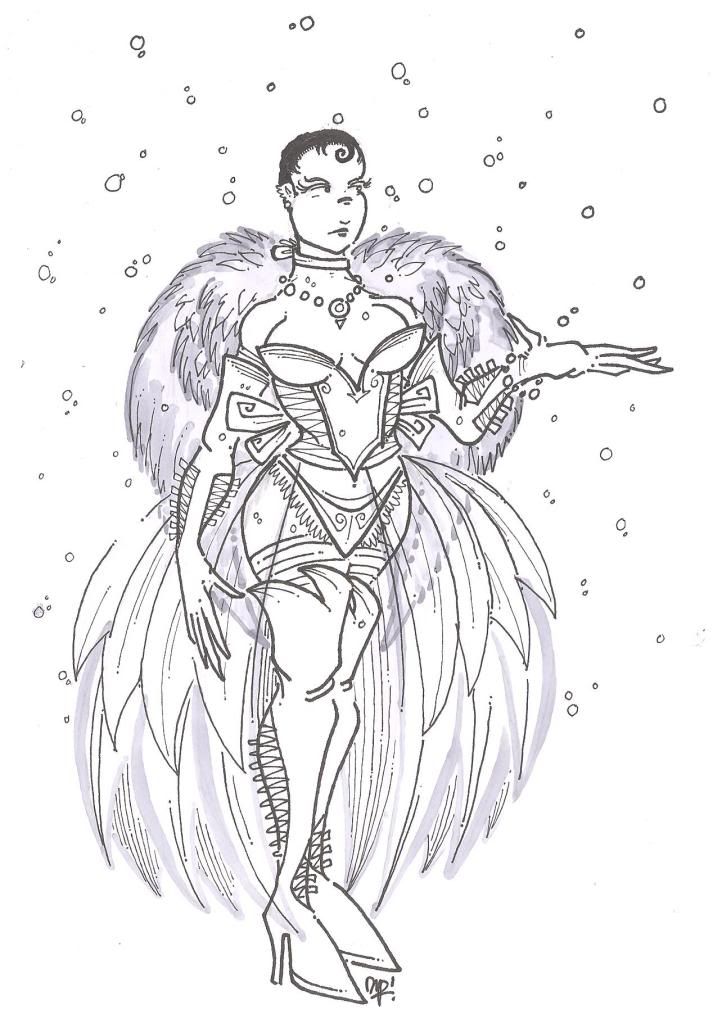The Xenos are exactly that: foreign, strange, alien. Their ways are not the ways of The Parliament, let alone the Coteries. Their existence has been known for centuries, treated first as a threat, then a curiosity, and now a possible genuine ally. The more humanity explored, the more was added to the Dream. The stranger worlds met by humanity, the stranger The Dream became... and the more regularly the Xenos left their Colour to visit the Coteries' Dream. The left the Canaries as a peace offering: their ways are alien, savage, quizzical. They are exuberrant, understanding, pro-active, yet defensive. Whatever it is they are keeping from The Parliament.
And now, with the advent of the New Parliament, and the Kiwis' contact, they have been accepted into the Parliament.
- - -
In short, Xenos are the foreign birds, non-Western cultured strange societies from a strange two-dimensional colour world, within the Abyss. They have strange culture, purpose, & emotions. And they are many and varied.
Some Xenos are startlingly similar to the Coteries of The Paliament, only strange, different and changed. The Riverstates and Mourning Veil both have Oriental, expression-focussed counterparts within the Xenos; The Green bare resemblance to travelling Plainsmen, The Dirt to great stone cities hewn from cliffsides, and The Eye bare similarities to the devastating temple armies of the Hummingbirds.
Some Xenos are Explorers: powerful wrariors unaffiliated with a Tribe, sent by their bright Patron into the Dream to establish contact and support with The Coteries of The Parliament. The Canaries were the first, and have almost lost all their contact with The Colour, becoming purely members of The Dirt, but more recently a Kiwi established contact with The Green, and have found a place as ambassadors.
However, some Xenos are just impossible to comprehend in comparrisson to the Coteries. The Ocean-worshiping Penguins are closest to the "nest" structures seen within the Coteries, with their Little & Blue tribesmen, their Rockhopper excitement priests, the Albino barbarians, and the impossibly powerful and beloved Emperors, embodiments of The Cyan itself.
The exuberant Peafowl stand aside from their seemly closest relatives, the Chickens, with their luxurious, decadent lifestyles: one Maharahja Cock tended to by their many Hen Wives, entire Tribes made of a single family.
The Previously mentioned Hummingbirds operate a bizarre bonechilling army structure with thousands of Warriors ready to die in the name of their "Nectar" drinking High Priest, similar to Humanity's Aztec Cultures.
The Emus, Ostriches, Cassowaries, Kiwis & Bustards are the nomadic plainspeople, great hunters, crafters and gatherers: powerful with insight and effort, but neglecting of home and civilization - the stylings and gifts of their fashionistas, the Flamingoes, more than make up for the lack of a roof over their head. Unlike those relatives of Doves & Pigeons who have learnt to live amongst the rocks and cliffsides, great hewn cities within stone, working with the resources of Stuff to create Ideas to rival the Mockingbirds, ancient cultures worshipping their god-like Immortal Queens, the Paradises.
But perhaps most striking of all are the hyper-intelligent Parrots: Scholars and collectors of language, Song & artistic writ, the Mackaws, the most intelligent and brightest of all ruling their intelligocracy with seeming benevolence.
- -
The Previously mentioned Hummingbirds operate a bizarre bonechilling army structure with thousands of Warriors ready to die in the name of their "Nectar" drinking High Priest, similar to Humanity's Aztec Cultures.
The Emus, Ostriches, Cassowaries, Kiwis & Bustards are the nomadic plainspeople, great hunters, crafters and gatherers: powerful with insight and effort, but neglecting of home and civilization - the stylings and gifts of their fashionistas, the Flamingoes, more than make up for the lack of a roof over their head. Unlike those relatives of Doves & Pigeons who have learnt to live amongst the rocks and cliffsides, great hewn cities within stone, working with the resources of Stuff to create Ideas to rival the Mockingbirds, ancient cultures worshipping their god-like Immortal Queens, the Paradises.
But perhaps most striking of all are the hyper-intelligent Parrots: Scholars and collectors of language, Song & artistic writ, the Mackaws, the most intelligent and brightest of all ruling their intelligocracy with seeming benevolence.
- -
The biggest identifying mark of a Xenos is the pure colour: Xenos are bright and colourful creatures, unsubtle in their appearance. Playing a Xenos requires at least one colour represented as brightly as possible in both clothing and skin.
Playing Xenos is a little less straight forward than playing in a standard Cotery. Firstly, decide if you want to play on your own as an Explorer, an Ambassador or an Exodite.
Playing Xenos is a little less straight forward than playing in a standard Cotery. Firstly, decide if you want to play on your own as an Explorer, an Ambassador or an Exodite.
- Explorers are very powerful, and start with many Qualities and Songs, making them as powerful as both a Bishop or a Knight. However, they have duties to do in the name of their Patron: establishing contact with another Cotery allows further of that Xenos Winged to play in that Cotery (see Kiwis in Green), but partially strips them of many of their abilities. Disobeying their Patron could be worse though.
- Ambassadors represent the Xenos to the Winged's Parliament. Their goal is to seek representation and influence within the Parliament. Ambassadors often start with a powerful Artefact to help them achieve this.
- Exodites are loners breaking off on their own, investigating the big wide, mad dream. They have no group standing, and are not expected to create group ties. They start with a powerful artefact to help them (Like a weapon, or pet, or transport)



